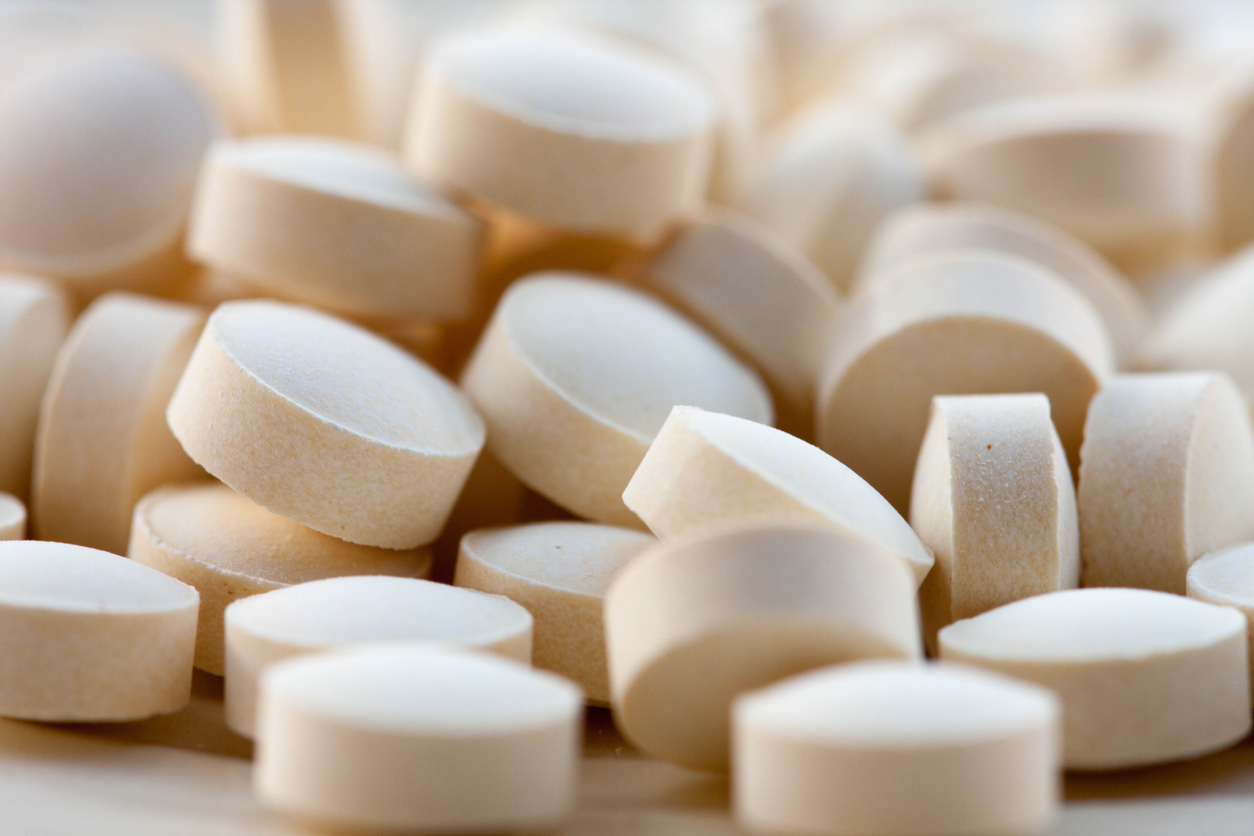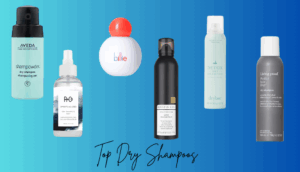We’re always on the hunt for the best shampoos, conditioners, and hairbrushes to keep our hair looking soft, frizz-free, and full. But at the end of the day, our hair is a reflection of our health. And there are certain vitamins that our bodies need to ensure healthy hair growth, strength, and shine. One of those vitamins is folic acid! Keep reading to learn more about folic acid and folate, how much you need in your diet, and the folic acid benefits for hair.
What Is Folic Acid?
Folate and folic acid are forms of a water-soluble B vitamin that helps the body make healthy new cells. While folate occurs naturally in food, folic acid is a synthetic form of the vitamin. Since the 1990s, folic acid has been added to various foods, like cold cereals, flour, crackers, pasta, and more. However, foods that are naturally high in folate include leafy greens (spinach, broccoli, and lettuce), asparagus, okra, fruits (melons, lemons, bananas), orange juice, tomato juice, and more.
What’s The Difference Between Folate and Folic Acid?
Folic acid and folate have the same effects in the body, but they’re slightly different. Folate, or folacin or vitamin B9, occurs naturally in a variety of food sources.
Folic acid is the synthetic version of folate used in supplements to fortify foods. Once it’s consumed, it converts into a biologically active form of folate.
This vitamin is essential to physical health, and when you don’t get enough of it in your diet the deficiency can have significant repercussions. Folate deficiency can lead to anemia, causing fatigue, headaches, weakness, poor concentration, gastrointestinal issues, heart palpitations, and shortness of breath. It can also have negative effects on our appearance — anemia causes our hair and nails to become brittle and unhealthy.
The Benefits Of Folate and Folic Acid
Folic acid is used for preventing and treating low blood levels of folate and high blood levels of homocysteine. While it’s most popularly used for women that are pregnant to prevent miscarriage and birth defects, folic acid is also used for conditions including depression, hearing loss, and cognitive decline. Folic acid can even lower the risk of heart disease and stroke. Studies have shown that taking folic acid supplements carry a 10 percent decrease in strokes and a 4 percent decrease in cardiovascular diseases.

Folic Acid Benefits For Hair
Folic acid helps hair growth by helping red blood cells in the body. In short, our red blood cells carry oxygen to all of our organs, including hair follicles. Our hair follicles rely on that oxygen to function. So if our red blood cells aren’t working as well as they should be, our hair follicles won’t produce enough keratin, aka the foundation of healthy hair. It also helps in the proper synthesis of DNA nucleotides and amino acids. In other words, it nourishes the follicles and adds shine and volume to hair.
In fact, folate deficiency and autoimmune-induced hair loss tend to go hand-in-hand. And folate deficiency doesn’t just cause our hair to fall out — it can also cause premature graying and loss of color.
How Much Folic Acid Do Women Need?
If you already take a daily vitamin, check the label to make sure you’re getting 100% of the daily value. Most women need 400 micrograms (mcg) of folic acid every day, or the same amount in a separate supplement.
Folic acid recommendations vary by country, but generally speaking, women in the United States need about 400 micrograms a day. Again, check your vitamin’s Daily Value. Other women may even need to take higher doses — as much as 1,000 micrograms — but only with a doctor’s supervision and approval. This tends to be women with sickle cell disease, Inflammatory Bowel Disease (IBD), or Celiac disease. If you take medications for cancer, autoimmune diseases, or epilepsy, you may want to ask your doctor about larger doses.
And when it comes to folate (not folic acid supplements), you can have as much as you want! So start your day off with that green smoothie!
The Best Way To Take Folic Acid
As mentioned above, check your daily vitamin! Most women’s vitamins will contain the daily value of folic acid. However, if you have any of the conditions mentioned in the previous section, you may want to ask your doctor for a specific type of supplement.
If you don’t take a daily vitamin, you should easily be able to find a cereal that contains 100% DV of folic acid. Just be careful not to rely completely on your diet. It’s always best to take a vitamin to ensure your body is getting the nutrients and vitamins it needs.
It seems like every day we’re all hearing about some new magical hair product or oil that promises strong, shiny hair. But there’s a strong chance that this pungent oil may have flown under your radar. Read on for more information about mustard oil for hair, along with other skin benefits.







